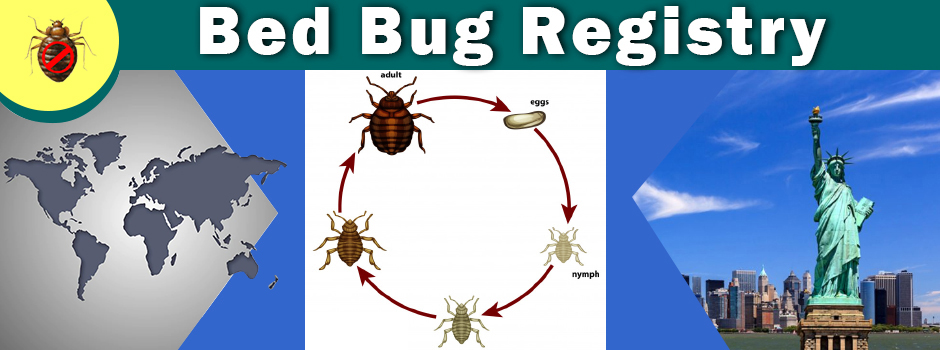As bed bug infestations become more common in Columbus and Bloomington, Indiana, landlords should pay special attention to their properties. According to the 2015 Bugs without Borders survey, rental units and condominiums remain the most common places for bed bugs to take up residence. And Indiana state law requires landlords to deliver their premises to tenants in habitable condition. Federal law also requires agents and owners of HUD housing maintain their premises in a decent, safe, sanitary condition. This means if bed bugs, rodents, or other pests invade your property, the propertys owner needs to address it.
Indiana state code IC 32-31-8-5 states A landlord shall do the following: (1) Deliver the rental premises to a tenant in compliance with the rental agreement, and in a safe, clean, and habitable condition. Notice the word deliver. In Indiana, state law does not require landlords to keep their tenants properties in habitable condition; it only requires that landlords deliver their premises in such condition. If a bed bug or other infestation occurs, the landlord is therefore not responsible for eradicating the pests if its stated in the rental agreement that the tenant is responsible for maintaining the property. If, for some reason, the landlord introduced the pests, the responsibility for killing the pests would, of course, fall on the landlord.
For single-tenant rentals, distinguishing who introduced the bed bugs is fairly easy. If there were no bed bugs before a tenant arrived and a year or more later bed bugs infested the premises, its logical to conclude the tenant introduced the pest. However, for multiple-unit rentals, figuring out who introduced a pest becomes problematic.
In multi-unit rentals, tenants are continually coming and going. It can be difficult to pin down who introduced a pest and when. If the landlord cannot prove that an individual tenant introduced bed bugs, it might very well fall on the landlord to hire a professional to kill the pests.
Killing bed bugs in a multi-unit facility without bickering over who introduced them is a good practice, anyway. As a landlord, you do not want a bed bug infestation spreading. An infestation will drive tenants out, and rumor might keep new tenants from moving in, even if the bed bugs are treated.
Landlords will also likely be responsible for paying to destroy bed bugs if there has been a history of bed bugs in a given unit, even if it is a single-tenant dwelling. Bed bugs are notoriously difficult to kill, and they have been growing resistant to insecticides. Sometimes it takes multiple treatments to eradicate a bed bug population.
For these reasons, its important to contact a pest control expert if you suspect an infestation. Professionals know how to identify bed bugs, and they can identify which treatment option will best kill pests in your property.
Federal regulations require more of owners and agents of HUD housing than does the Indiana State Code of landlords. In a 2012 notice, the Acting Assistant Secretary for Housing Carol J. Galante informed HUD owners and agents of their responsibility to treat bed bug infestations.
Notice H 2012-5 states:
Pursuant to 24 CFR Part 5, Subpart G, HUD housing must be decent, safe, sanitary and in good repair. Owners of HUD-insured or assisted housing must maintain such housing in a manner that meets physical condition standards. In accordance with project Regulatory Agreements and Section 8 HAP Contracts, the housing must have no evidence of infestation.
HUD owners are therefore required to take care of bed bug or other pest infestations. This, however, does not necessarily mean that the owner-agent must always foot the bill for extermination. The requirements simply put urgency on addressing the infestation. Who pays for the pest control service is determined by who introduced the pest. As mentioned, it can be difficult to determine who introduced bed bugs in multifamily units.
Because bed bugs are spreading, the notice suggests that HUD owners and agents create an integrated pest management (IPM) plan to prevent infestations before they begin. An IPM plan includes steps to educate tenants, stop infestations before they occur, respond to possible infestations, and following up on treatments.
Many pest control companies also offer pest protection plans, which HUD owners might want to consider. These plans involve regularly scheduled inspections and service, which can prevent infestations before they arise.
Photo courtesy of John Benson, Moving Out.
Addressing bed bug infestations is important because ramifications for ignoring an issue can be severe. For example, tenants might withhold or reduce their rent payment if a landlord does not respond in adequate time. They may also go ahead and hire outside company to conduct service and then deduct the cost from their rent.
Worse, the tenant might contact local authorities if you do not respond in a timely manner. If inspectors then come and find an infestation, they can issue an order for you to fix the problem and penalize your company. Worse, if the problem is pervasive and disturbs tenants ability to live in the building, the tenant can legally move out without notice. At that point, they might file a lawsuit.
When your tenant says, bed bugs, its important to respond without delay. Figure out later who will pay the bill. Protect your property and keep your tenants happy by killing bed bugs before they spread.
Go here to read the rest:
Rentals, HUD, and Laws About Bed Bug Treatment - Yes Pest ...

 Residence
Residence  Location
Location 










